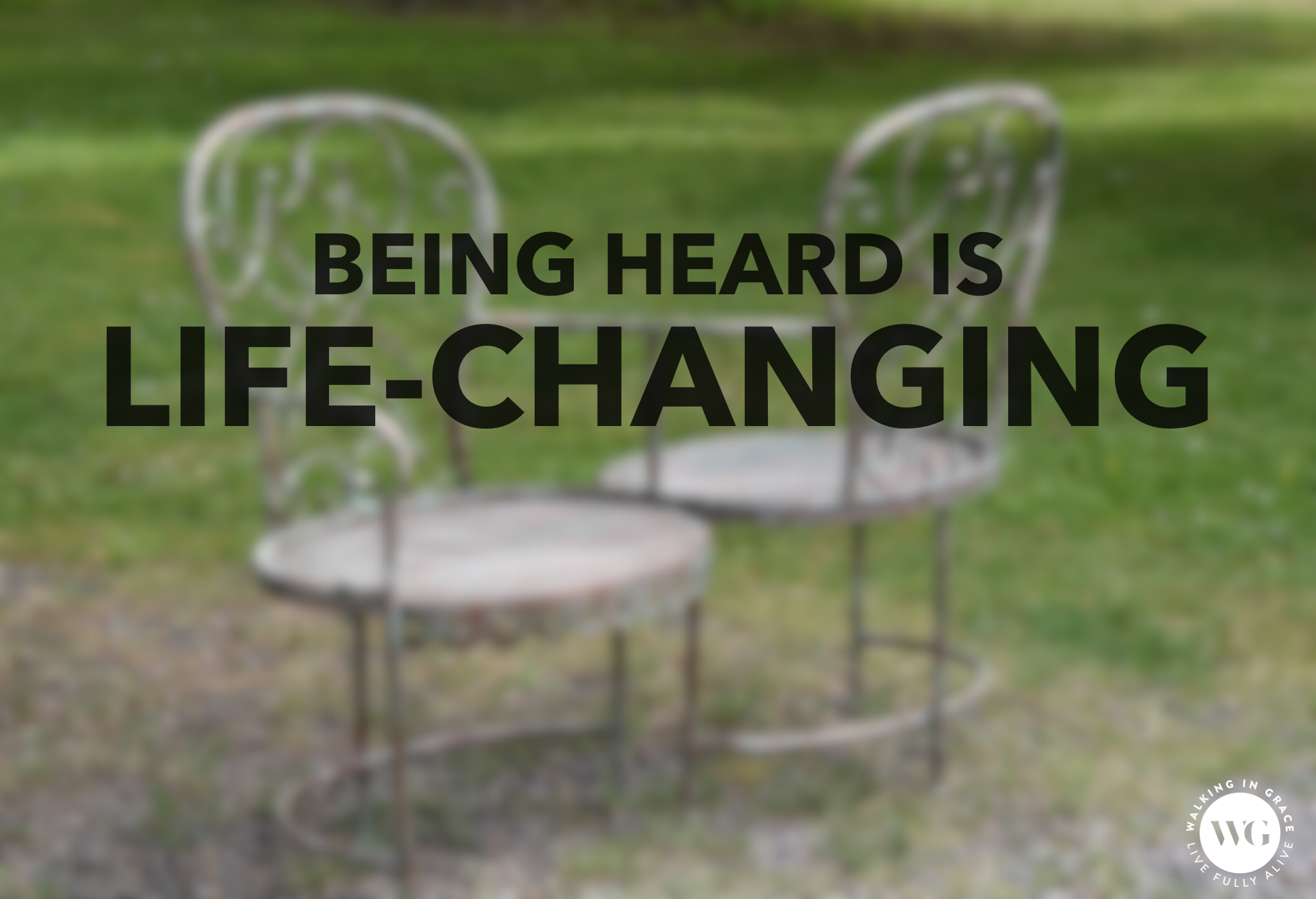Being Heard is Life-Changing
Laura Longville
“Have you ever talked with someone who listened with such abandon to what you were trying to say that you were yourself made clearer in what you were trying to express by the very quality of that person’s listening?” ~The Upper Room pg. 73
I recently returned home from a vacation with professional listeners. We spent 5 days in the breathtakingly beautiful Smokey Mountains. We are specialists in the listening department; we’re all therapists. In the midst of hiking, boating, and playing, we each shared our longings and dreams, laughed and cried, and listened with our hearts.
Listening doesn’t come easy for most. But for the five of us, we are trained in the art of true listening. We spend hours each week listening to people share their fears, losses, anger and regrets, grief and so much more. We do our best to pay attention to the spoken words and discern what is unexpressed. Listening from the heart, on purpose, and with intention is powerful.
Being heard and understood can change a person.
In her article, Listening for Change, Jean Nevills says this, “How we listen, and who we are being as we listen and as we speak matters. True listening resides in my being, that is, in the presence that I am. The quality of my listening and the quality of the speakers sharing is affected by how each show up in the moment. In the presence of each other, speaker and listener both, by words spoken however haltingly and words heard with patient open receptivity---create a portal through which a new tone or wiser voice hear.”
Amidst the racial tensions, the pandemic, unemployment, and numerous uncertainties, people burn to feel heard. They want to know that someone understands them and that they matter. We hunger for change. These times offer us multiple opportunities to practice listening well.
Nevills inspires the reader to consider; listening is ultimately Love. “To love your neighbor and the Eternal Listener who is listening to my life.” True listeners and the Eternal Listener care about you. For example, my friends, the professionals, value and love me, my thoughts and feelings, my struggles, and celebrations. They show up.
God, the Eternal Listener knows every single detail of your life and mine. He knows our stories and all its chapters. Our stories find value in being shared. Whether it’s our childhood stories, stories we’ve inherited or sacred stories of our faith, our stories over time reveal truth and meaning.
Not only does sharing our stories of pain with one another create a deep connection, it also offers healing and hope.
Our world is filled with pain and anguish and the repercussions of COVID 19. Many are alone, feel unheard and disillusioned, abandoned, forgotten, and angry. We can listen and help one another.
The Eternal Listener is on this journey with us. He cares and wants us to share our life with him. Lamenting is one way to do that. While we are on the crazy journey of life, lamenting is the vehicle that helps us travel safely.
What is Lamenting?
Lament is a verb, an action to mourn. To lament means we grieve, weep and shed tears.
Life is full of reasons to mourn. God sees our pain and he grieves with us. AND He has given us a way to talk with him about our pain and anguish.
Laments are the language of suffering. Dr. Rah in his book, Lament states this, “The hope of lament is that God would respond to human suffering that is wholeheartedly communicated through lament.”
Laments are written TO God. We pour our hearts out, fully express our grief, and even accusing God. What separates a lament from just complaining is the focus in on God. A lament is:
An honest expression of emotion, even expressing doubts.
A call upon God
o It’s a statement of faith not of doubt
Where people cry out to God as the one in control, ask him to take action or bring justice, and let God solve the problem.
There are roughly 66 Psalms that are considered Laments. Some are used by individuals and others were used in community. Lament is a powerful gift of God to human beings.
Laments have 7 parts and not necessarily in order nor are all the parts present. The only essential part of a lament is a complaint.
1. Address to God (just like when you’re writing a letter or email)
2. Review of God’s faithfulness in the past. Remembering what God has done.
3. A complaint
4. A confession of wrongs done or claim of innocence
5. A request for help
6. God’s response (not often stated)
7. A vow to praise, a statement of trust in God or anticipation of what God will do.
Here are a couple of examples of Psalms written as Laments.
Psalm 13 – Pray this lament when you feel alone, rejected by God or others, or when grieving.
Psalm 17 -Longing for justice and for God to take action.
Psalm 35 -You can use this Psalm when you have people against you. You can also use this Psalm as a rallying cry against the invading agents that assault your body during a sickness. Picture the “attackers gathered against me when I was unaware” as the bacteria, virus or cancer that makes you sick.
These are a few good examples of laments written by people in pain, confusion, anger, and doubt.
Write your own Lament
You can write your own lament to God. Follow the guide given above with the 7 parts of a lament. Pour your heart out to God. It doesn’t have to be fancy, eloquent, or elaborate. You don’t have to share it with anyone else. Let it be real, between you and God.
God is the Eternal Listener. He’s a true professional! He loves us and wants to hear our hearts. He wants to be there with us in the midst of these trying times. We are not alone.


